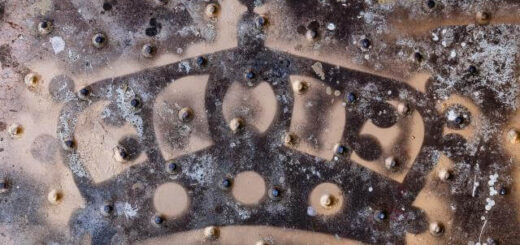Q&A Virtues of Night Prayers

Getting your Trinity Audio player ready...
|
Question
Recently I was forwarded two narrations via a social media app and wanted to know about their authenticity. Accompanying the forward was a comment: ‘Isn’t it the best thing on earth!’ but no clarification was given as to whether either of these two traditions are authentic. The narrations are:
- “Samurah ibn Jundub said: The Messenger of Allah ordered us to pray during the night, a little or a lot, and to make the last of the prayer the Witr prayer.
This is related by at-Tabarani and al-Bazzar.” - “Anas quoted Allah’s Messenger (peace and blessings be upon him), as saying: Prayer in my mosque is equal to ten thousand prayers [elsewhere]. And prayer in the Sacred Mosque is equivalent to one hundred thousand prayers [elsewhere]. And prayer in the battlefield is
equivalent to one million prayers [elsewhere]. And what is more than all of that is two rak`ahs performed by a servant [of Allah] during the middle of the night.
This is reported by Abu ash-Shaikh, Ibn Hibban in his work ath-Thawab, and al-Munzhiri, in his book at-Targhib wat-Tarhib, is silent about it.”
Answer
- From what we can currently discern, both narrations have been judged to be inauthentic, or weak (ḍaef). In other words, it cannot be established beyond reasonable doubt that these emanate from the Prophet peace and blessings be upon him.
Reasoning
Both narrations appear in the English (and Arabic) version of Fiqh al-Sunnah, minus the last comment: ‘Isn’t it the best thing on earth.’ There, they are cited as presented above, without the detailed channel of transmission (isnād) for each, and without a precise comment in relation to the point of authenticity.
The narration of Samurah ibn Jundub
This narration is to be found in the Mu’jam al-Awsaṭ [Vol. 3, no. 3792, p. 36] of al-Ṭabarāni. In full it appears as follows:
حدثنا علي بن بيان المطرز قال ثنا ابو معمر صالح بن حرب قال ثنا سلام بن ابي خبزة عن يونس بن عبيد عن الحسن عن سمرة بن جندب قال امرنا رسول االله صلى االله عليه وسلم ان نصلي من الليل ما قل او كثر وان نجعل ذلك وترا
Ali ibn Bayyān al-Mutariz narrated to us he said Abu Ma’mar Ṣāliḥ ibn Ḥarb narrated to us he said Salām ibn Abi Khabza narrated to us from Yunus ibn ‘Ubayd from al-Ḥasan from Samurah ibn Jundub, he said: The Messenger of Allah ordered us to pray during the night, a little or a lot, and to make the last of the prayers the witr.
It is also cited in Majmu’ al-Zawā’id [no. 3522] of al-Haythami. He comments after mentioning the text and narrator: ‘It is narrated by al- Bazzār; al-Ṭabarāni in al-Awsaṭ and al-Kabir and Abu Ya’la. In the channel (riwāya) of al-Bazzār (has) that the Messenger of Allah peace be upon him had ordered us that we pray every night after the mandatory prayer. Its channel of transmission (isnād) is ḍaef.’
Perhaps the most obvious difficulty of the isnād that al-Ṭabarāni records, is that is contains the narrator Salām ibn Abi Khabza. In his book al-Ḍu’āfa’ wal’Matrukun, Imām al-Nasā’i classes him as rejected in ḥadith (matruk al-ḥadith). Ibn Abi Ḥātim mentions him as follows in al-Jarḥ wa’Ta’deel: Abdar-Raḥman narrated to us he said Abu Zur’a was asked about Salām ibn Abi Khabza, so he said: ‘Basran, munkar al-ḥadith.’ Other scholars of ḥadith have said similarly.
Regarding the latter half of the tradition where it is stated: ‘to make the last of the prayers the witr,’ the substance, though not necessarily the precise wording, has been reported authentically elsewhere. For example, as narrated upon the authority of Ibn Umar, in Bukhāri:
حدثنا مسدد قال حدثنا يحيى بن سعيد عن عبيد الله حدثني نافع عن عبد الله عن النبي صلى الله عليه وسلم قال اجعلوا آخر صلاتكم بالليل وترا
Musadad narrated to us he said Yaḥya ibn Sa’eed narrated to us from Ubaydallah, Nafi narrated to me from Abdullah from the Prophet peace be upon him, he said: Make witr your last prayer at night.
However, for a further discussion regarding the status of witr, its optimum time and various modes, please refer to the translated sections of the book of prayer, al-Muhalla.
The narration of Anas
The narration from Anas ibn Mālik, seems to be a little more elusive. At present, it hasn’t been possible locate this tradition being cited in full, according to this wording, together with an accompanying isnād. The Arabic text appears as follows:
روى عن انس رضى الله عنه يرفعه إلى النبي صلى الله عليه وسلم قال صلاة في مسجدي تعدل بعشرة آلاف صلاة وصلاة في المسجد الحرام تعدل بمائة ألف صلاة والصلاة بأرض الرباط تعدل بألفي ألف صلاة واكثر من ذلك كله الركعتان يصليهما العبد في جوف الليل
Narrated from Anas and he raised it to the Prophet peace be upon him (that) he said: Prayer in my mosque is equal to ten thousand prayers [elsewhere]. And prayer in the Sacred Mosque is equivalent to one hundred thousand prayers [elsewhere]. And prayer in the battlefield is equivalent to one million prayers [elsewhere]. And what is more than all of that is two rak`ahs performed by a servant [of Allah] during the middle of the night.
In al-Taghrib wa’l-Tarhib [no. 812], al-Mundthari mentions the tradition with this wording, but without an isnād. He only follows it up with mentioning that it’s cited by Abu al-Shaykh Ibn Ḥibbān in his work al-Thawab. Printed versions of the work have the sourcing (takhrij) designated as being ḍaef. Albāni seems to have the same view, for example in Ḍaef al-Taghrib he notes that it is ḍaef. Elsewhere, for example in Tamām al-Mana’ he comments: ‘In the ḥadith itself, is evidence of its weakness, for it is that the prayer in his mosque, peace be upon him, is (equivalent) to ten thousand, and it is proven in the authentic aḥādith that it is a thousand prayers. Therefore, the ḥadith is munkar.’ Al-Hāfiz al-‘Irāqi also mentions the tradition as being ḍaef in Takhrij al-Iḥyā’ [no. 580, pp. 511/512].
Al-Ṭabarāni has a narration from Anas in Mu’jam al-Awsaṭ [Vol 3, no.3908, p. 75] but the wording is shorter and doesn’t match this exactly. The sourcing (takhrij) appears to be ḍaef too, ostensibly due to the presence of Abdur-Rahman ibn Uthman Abu Bahr al-Bakrawi in the isnād.
To conclude, given what has been presented above, it is does not appear that either narration can be judged as being authentic, beyond reasonable doubt (Ṣaḥīḥ). Several scholars of ḥadith have judged these traditions as being inauthentic – ḍaef.
And Allah knows best.



